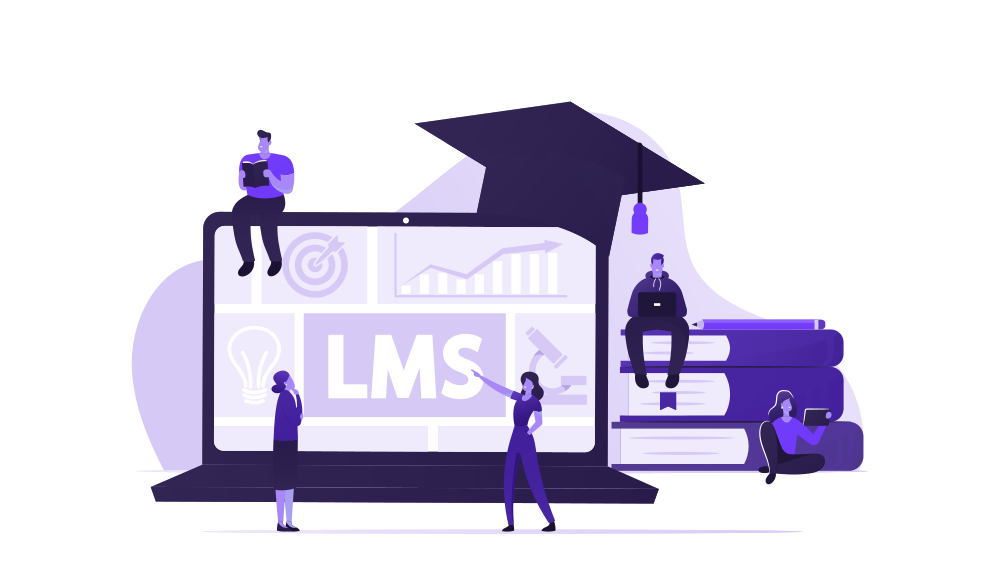Comments
- No comments found

The rapidly growing demand for efficient, scalable and interactive educational platforms has led to remarkable innovations in the modern world.
Learning management systems have become the cornerstone of e-learning, providing teachers and learners with a seamless, engaging and productive online learning experience.
LMS developers continue to push the boundaries in e-learning by creating new solutions and improving existing ones. This has resulted in a growing number of online education systems that meet different needs, budgets, and implementation scenarios.
With a focus on developing customized educational solutions that incorporate the latest advances in technology and education, Geniusee stands out in an education technology market crowded with other e-learning technology providers. Its expertise in building user-friendly, efficient and scalable LMS platforms has enabled institutions and organizations to deliver high-quality education worldwide.
Understanding the types of LMSs available is important for organizations to make an informed decision that matches their educational goals, technical capabilities, and budget constraints. Let's dive into this topic and learn more about it!

A Server-Based Learning Management System is hosted on the organization's own servers. This setup gives institutions complete control over their LMS, including customization, security protocols, and data management. The advantages of a server-based LMS include:
Organizations can tailor the LMS to their specific needs, integrating custom functionalities and branding.
Hosting an LMS in-house allows for greater control over data security, which is very important for institutions dealing with sensitive information.
With dedicated hardware, server-based LMS can offer you robust performance, handling large numbers of users without dependence on internet bandwidth.
However, remember that this type of LMS requires significant upfront investment in hardware and software, as well as ongoing maintenance costs and IT support to manage the infrastructure.
In contrast, a Cloud-based learning management system is hosted in the cloud, meaning it is accessible via the Internet and managed by a service provider. The advantages of a Cloud-based LMS include:
There is no need for large initial investments in hardware or software. That makes it a great option for smaller organizations or those with limited budgets.
Cloud-based systems can easily scale to increase the number of users or resources without requiring additional hardware.
Being internet-based, these LMS platforms offer greater flexibility, allowing users to access the system from anywhere at any time.
The service provider handles all maintenance and updates, ensuring the LMS is always running on the latest version with the most up-to-date features.
While cloud-based LMSs offer convenience and efficiency, concerns about data security and less control over customization can be potential drawbacks for some organizations.

For institutions wishing to deploy their own LMS, there are mainly two main paths to consider: adopting a Ready-Made LMS System or developing a Custom LMS System.
Ready-made LMS platforms are pre-built solutions that offer a quick and easy way to implement an e-learning strategy. These systems are equipped with a set of standardized features to meet common training needs.
Advantages include immediate deployment, lower upfront costs, and the reliability of using a proven platform. However, the downside can be limitations in customization and potential trade-offs in terms of specific requirements or unique branding.
Choosing a custom LMS involves designing and developing the platform to meet an organization's specific needs and objectives. This approach provides unprecedented flexibility in terms of features, integration options and branding.
While the initial development costs and time investment are higher compared to off-the-shelf solutions, a custom LMS can provide a more engaging and effective learning experience, ultimately leading to improved learning outcomes.
The choice between a server-based and cloud-based LMS, as well as the choice between an off-the-shelf or customized solution, depends on a variety of factors, including budget, technical expertise, and specific educational goals.
If you want to develop a customized, efficient and engaging LMS, partnering with an experienced LMS developer like Geniusee will be a competitive advantage. Our experience in creating customized LMS solutions ensures that you not only get a platform that meets your specific needs, but also one that is scalable, secure, and able to adapt to the changing technology landscape.
Leave your comments
Post comment as a guest